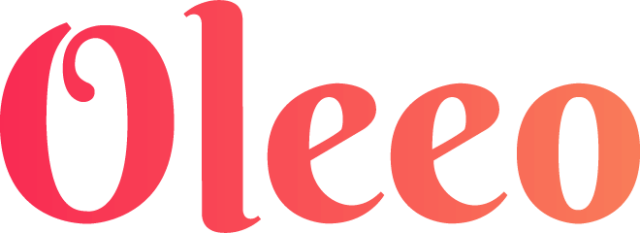What is RPO Technology? Five Benefits for Your Business Recruitment Process

Let us introduce you to RPO technology. When was the last time you audited or accessed your recruitment and hiring procedures? How do you know if they’re fully optimized and working as intended?
Before the pandemic, unemployment in the US was as low as 3.4%, before skyrocketing more than 430%. It wasn’t just a case of businesses folding or mass redundancies though—in the aftermath of COVID-19 came the ‘Great Resignation’ of 2021, when many employees voluntarily left their jobs.
A recent report from the U. S. Bureau of Labor Statistics found 9.6 million job openings—or that 5.8% of total jobs are currently vacant. What does it all mean? In simple terms, a lot of employee turnover, an arguable labor shortage, and some serious jostling for the best candidates.
With remote and flexible working, employees today feel more empowered to leave their current roles for pastures new (and seemingly greener). Oftentimes, when a team member matriculates, however, it’s written in the stars—in other words, the separation begins as early as the recruiting process.
With so many unknowns, RPO technology can be a godsend. If you aren’t familiar with how it works, don’t worry: you’ve come to the right place.
What Exactly is RPO Technology—and How Does It Work?
Essentially, recruitment process outsourcing (RPO) technology streamlines recruiting.
An RPO provider handles either all or part of hiring, recruiting, and talent acquisition for the businesses that reach out to them. They’ll often use various Cloud Recruitment Software tools to streamline and optimize these activities.
RPO solutions are helpful because they take the burden off in-house HR and acquisition teams. This leaves them free to focus on other areas, such as strategy and learning and development (L&D). RPO technology largely cuts out mundane and repetitive tasks by using AI and automation.
Customized RPO recruitment solutions can be tailored to fit your specific needs and job requirements, with providers using specialist tech to source potential candidates. Technology can also assist with job boards, social media posting, and networking on sites such as LinkedIn.
RPO technology can also streamline the screening and assessment process. Outsourced providers may offer specially developed apps for this purpose or use your existing Applicant Tracking System (ATS).
RPO in recruitment utilizes tech at every step. There are even tools for managing interviews, job offers, and onboarding.
With RPO, you get instant access to the best recruiting and analytical resources available.
Five Benefits of Recruitment Process Outsourcing for Your Business
RPO recruiting creates a well-oiled and agile system for your business. Here are just some of its benefits.
1. Reduced recruitment spend
Through the use of technology, RPO allows you to recruit smarter. AI and automation speed up steps such as job board posting, and analytics inform users of the best places to post. They can also shape other strategies, such as offers and negotiations.
RPO tech also automates screening and assessments, meaning candidates can progress quickly without involving your team in the early stages. More efficient recruiting means fewer labor costs and less spending on job boards.
AI Use Cases in Recruitment also include intelligent screening, automated interview scheduling, and data-driven decision-making, which can specifically enhance RPO efficiency.
2. Increased flexibility and agility
Additionally, RPO provides you with a flexible recruitment solution. It can take over your entire process and scale with demand.
Alternatively, you can enlist an RPO solution to take on one or more specific steps in your hiring workflows. If you have a bottleneck in a certain area, for example, you can use it to deal with the overflow.
However you choose to use it, RPO allows you to change tactics as it suits and seamlessly scale according to your needs.
3. More time-efficient
Using Recruiting Automation tools and other RPO technologies also speeds up the recruitment process. It can expedite the entire procedure, shortening both your time to hire and your Time To Fill.
4. Decreased turnover
With companies spending an average of $1,100 on every new employee, you ideally want to hold onto them for the long term. Luckily, RPO is laser-focused on securing top talent that’s likely to stick around.
Additionally, with a good RPO solution, you should get a fully optimized onboarding process with human contact at every step. The result is a better experience for new hires, which sets them up for success and builds loyalty from the off.
5. More diverse talent pools
Finally, RPO solutions like Oleeo tend to use Recruitment Technology with automated screening and assessment. These talent acquisition platforms bring more transparency while eliminating bias from the process.
Features like Intelligent Writing can even help recruiters write more inclusive job descriptions.
How Do Employers Know If RPO Solutions Suit Their Business?
In some ways, RPO is a one-size-fits-all solution, in that it can be made to suit most businesses.
Here are some reasons why you might need it.
- Overstretched HR and/or recruitment teams
- You’re held back by inefficient legacy systems
- You’re unsure of how to meet compliance requirements
- Rapid business growth or workforce needs
- Increasingly high recruitment spending
- A lack of centralized recruitment and hiring data
- A lack of talent pool diversity
If you’re ready to outsource talent acquisition, however, some due diligence is required before you do.
Understanding what technology your organization needs
Before signing up with a provider, you must first know what technology your organization requires. You may already be using a candidate relationship management or ATS platform. If not, RPO services like Oleeo provide a robust applicant tracking system to suit your needs.
Some outsourced recruiting providers can make use of your existing recruitment tools. However, unless you’re using cutting-edge applications, it’s best to look for a solution that comes with the right technology included as standard.
What problem are you trying to solve?
You must also ask yourself why you’re looking at recruitment process outsourcing. Are you in need of better analytics? If so, you’ll want an RPO service that monitors candidate data with an easy-to-use Recruiting Metrics Dashboard.
Alternatively, maybe you’re lacking in diversity and inclusion. If you want to remove unconscious bias and speed up applicant hiring, you’ll benefit from a solution that automates Blind Screening.
How to Choose a Good RPO Provider
Choosing the right RPO provider isn’t always straightforward, if only because of the wealth of options that are out there.
That said, here are some technology benefits to search for when making your choice.
Technology benefits to look for when partnering with an RPO provider
Keep an eye out for the following technology benefits when choosing an RPO partner.
- Applicant tracking. An ATS is a foundational tool for optimizing recruitment (especially high volume). You need a centralized hub with remote accessibility to empower you to monitor and maintain contact with talent.
- Candidate relationship management. CRM analytics help recruiters better engage diverse talent. This also helps them communicate clearly and promote inclusivity during acquisition.
- Recruiting reports. An analytics suite helps recruiters better identify what’s working. It also highlights areas for improvement. This means you can shape a better recruitment strategy that aligns with your workforce planning.
- Recruitment events. Speed up the time to hire and increase candidate engagement as well. RPO providers like Oleeo automate various recruitment tasks to create seamless experiences for candidates.
RPO types and pricing models
There are also several types of RPO for you to choose from. These include:
- End-to-End RPO. An ongoing solution that encompasses all your recruiting and hiring practices. It’s often the most cost-effective option but can be relatively complex to implement.
- Selective. Select a provider to handle one or more stages of the recruitment and hiring process. This allows you to maintain control over certain areas, such as making job offers or onboarding.
- Recruiter on demand (ROD). Access services as and when needed. This can be a great option for seasonal hiring or those times when your HR team is overstretched.
- Project. Choose an RPO solution for the duration of a particular project.
As you can see, you have many different options to choose from.
RPO pricing models can be equally as diverse. You can pay a monthly management fee or pay per hire. Alternatively, for selective and on-demand services, you might select a pay-as-you-go model, meaning you only pay for what you use/need.
What’s the Difference Between Outsourcing and RPO?
Businesses can outsource recruitment via several means.
RPO provides a focused partner with specialized expertise in recruiting. Choosing this option means meeting your acquisition needs without involving excess capabilities (or costs).
RPO isn’t your only option, however. Some businesses outsource recruiting to managed service providers (MSPs) instead, while others opt for business process outsourcing (BPO).
Both MSPs and BPO routes can manage company recruitment. However, they can handle processes well beyond the scope of hiring, too. For example, outsourcing to these providers might mean handing over your customer service or marketing needs as well.
RPO Facts and Figures
Here are a few interesting RPO facts that might prove helpful when making your decision.
- 68% of recruiters believe investing in new recruiting technology is the best way to improve acquisition.
- Although it was valued at $4.8 billion in 2021, the RPO market is projected to grow to $26.4 billion by 2031.
- 40% of RPO deals include a technology component.
How Does RPO Work with Recruiting Software?
RPO providers will either work with your existing recruiting tools or provide specialist software for this purpose. In the case of the latter, you’ll likely have access to the best tools available to optimize your hiring processes.
In addition to using an applicant tracking system, RPOs often utilize job distribution portals to manage job listings. Other tools in their armories include candidate sourcing, CRMs, and assessment and screening capabilities.
As part of Virtual Recruiting, an RPO team might use scheduling software to conduct video interviews.
Candidate data and recruitment metrics also tend to be available in real time.
Oleeo Recruitment Software Will Improve Your Hiring Agility and Transform Your Workforce Strategies
There’s no better time than now to get a leg up on the competition—and it all starts with the people you hire. Partner with Oleeo today and take your recruiting efforts to the next level.
Our end-to-end talent acquisition software will guide you through every step of the recruiting journey. You can automate tasks like screening and interview scheduling and track data in real time, equipping you to react to market trends and potential skill gaps in your workforce.
Why not Book a Demo now?



